About Rotterdam
Full of energy and innovation, Rotterdam reinvented itself after the bombing of the Second World War. It broke with the past and chose modern architecture. The motto: light, air and space, was groundbreaking for that time. Rotterdam still embraces experimentation: almost anything is possible. Here, you are constantly surprised by new initiatives: from a rooftop city farm to a music festival in the harbor, from an exclusive rooftop bar to a brewery in an old warehouse. If you love architecture then a visit to Rotterdam — with its patchwork of architectural styles — is a must. Icons of the Nieuwe Bouwen era stand beside the typical reconstruction-architecture from the sixties, seventies and eighties. They clash cheerfully with the hypermodern landmarks that have been built in recent decades: the Erasmusbrug, Rotterdam Central Station, De Rotterdam, the Timmerhuis and of course the Markthal.
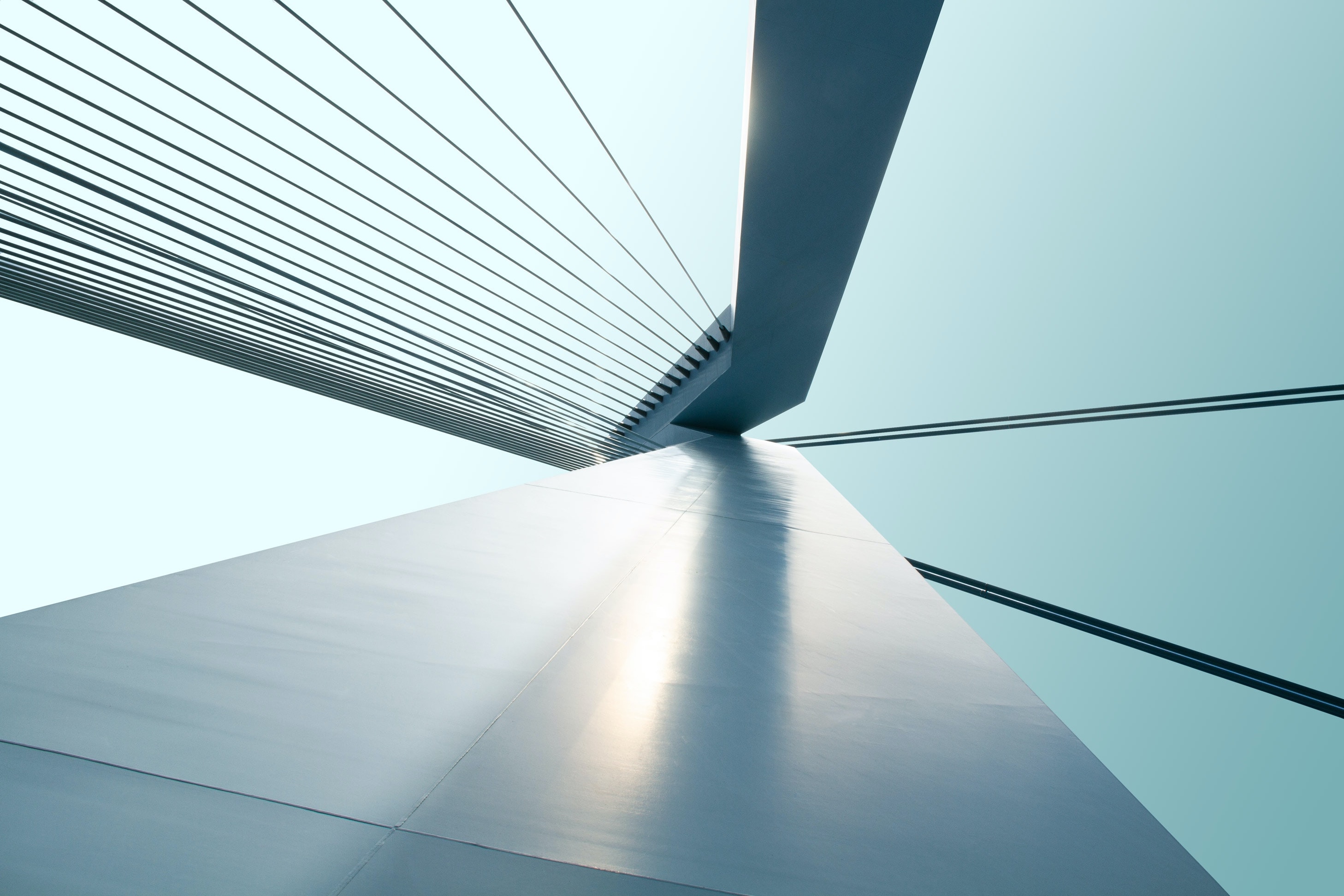 Simone Hutsch/unsplash
Simone Hutsch/unsplashErasmus Bridge
Rotterdam’s answer to Paris’ Eiffel Tower and Sydney’s Harbour Bridge, the graceful Erasmus Bridge opened in 1996 and was dubbed the Swan by the locals. The 800-meter long bridge spans the Maas River and links the northern and southern parts of Rotterdam.
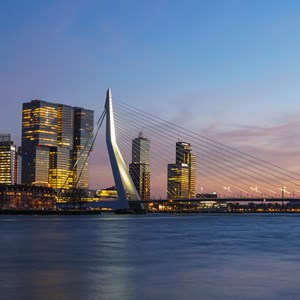 Dennis Möller/unsplash
Dennis Möller/unsplashDe Rotterdam
De Rotterdam is an iconic example of urban architecture, designed by Rotterdam based architecture firm OMA/Rem Koolhaas. The three linked towers are nearly 150 meters high, forming a ‘vertical city’ of high-class flats, a 4-star hotel, offices, shops, restaurants, fitness and parking facilities. The name refers to the SS Rotterdam, a steamship that once sailed a regular route to New York and offered a wide range of functions for its passengers' comfort.
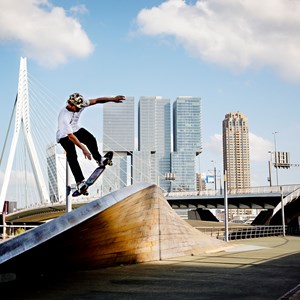 Iris van den Broek
Iris van den BroekVan Nelle Fabriek
The Van Nelle Factory is a classic example of the Nieuwe Bouwen school of Dutch modernist architecture. The ingenious building was designed to provide all the facilities for the employees close at hand, keeping the building fully above ground to create air, light and space. It was declared a UNESCO World Heritage Site in June 2014.
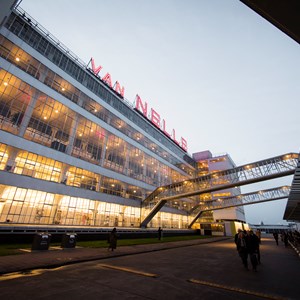 Guido Pijper
Guido PijperGroot Handelsgebouw
This national monument is a typical symbol of post-war reconstruction. The huge structure, 220 by 85 metres in size, was built in the early 1950s. There are offices and shops distributed across various levels, with a 1.5 kilometer ‘road’ through them. It is a leading meeting place for entrepreneurs. Take the lift in the Groot Handelsgebouw to the 7th Floor for a beautiful view of Rotterdam Central Station.
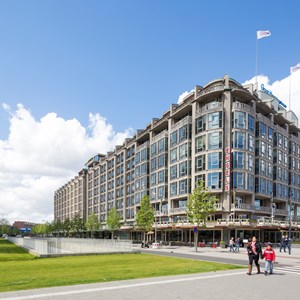 Ossip van Duivenbode
Ossip van DuivenbodeHet Industriegebouw
Het Industriegebouw is from the same architects as the Groot Handelsgebouw. Both buildings have been a national monument since 1991. Its function as a business complex has been restored, it houses a variety of companies from tech start-ups to architects (re)creating the city and from your favorite concept store to breakfast diner.
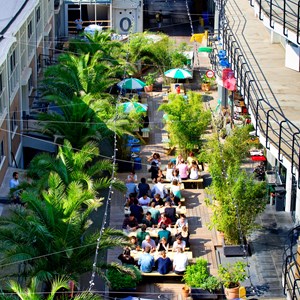 Bart Hoogveld
Bart HoogveldSt Lawrence Church
The Late Gothic church (1449-1525) is the only building still remaining from the medieval city center. The church received its current shape around 1525, but took heavy damage during the bombardment in May 1940. It now stands in striking contrast to the new architecture that surrounds it. Besides its regular church services, the building now also houses a permanent exhibition entitled ‘A monument full of stories’.
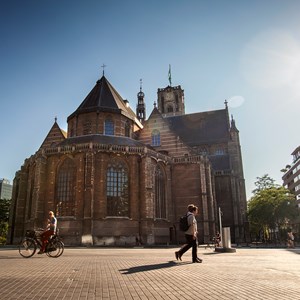 Claire Droppert
Claire DroppertCity Hall
The City Hall was one of the few buildings to survive the bombardment in 1940. The listed building in Beaux Art style with Byzantine, Roman and Art Deco influences is symmetrically structured around an inner courtyard. The mayor’s office is on the first floor of the right corner pavilion.
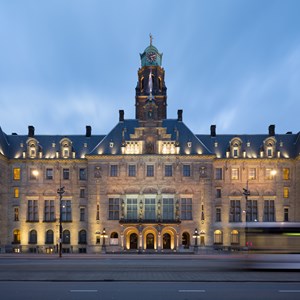 Ossip van Duivenbode
Ossip van DuivenbodeLuchtsingel
The Luchtsingel connects Rotterdam North to the Centre and revitalizes a forgotten area. The project consists of a wooden pedestrian bridge 390-metres long, The DakAkker (Urban Roof Farm) on Schieblock, a public area at the former station Hofplein and park Pompenburg. Crossing the pedestrian bridge brings you to Station Hofplein, the former station building that is now home to a number of restaurants, shops and a jazz club.
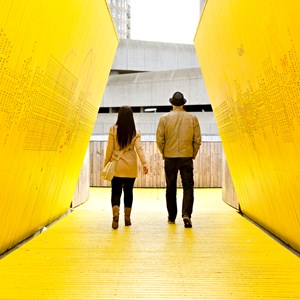 Iris van den Broek
Iris van den Broek